
Tree transplantation is the latest technology to suite the need to conserve trees. The trees are an important part of our ecosystem, and play a vital role in maintaining the biodiversity of the area. In order to facilitate construction of large scale projects without cutting of trees, this technology has been developed. Since trees have been established for many years, it is not possible to lift a tree overnight.
During the process of transplantation we see that the tree responds to a two tier root system and a new system is then gradually encapsulated in a root ball. The entire method is divided into the following steps:
 Initial root investigation
Initial root investigation
 Health analysis of the tree
Health analysis of the tree
 Treating the disease-ridden trees
Treating the disease-ridden trees
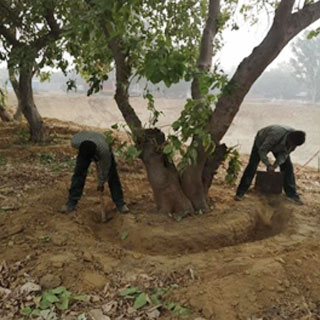
The condition of the soil where the tree has to be transplanted is thoroughly checked & necessary treatments are applied to the soil after digging a pit. The pit size has to be in accordance with the root ball of the tree. There are great differences in the environmental requirement for each tree. The light conditions, moisture, soil pH, wind exposure & improved drainage should be taken into consideration. All plants require space for root and crown development therefore adequate distance between other plants is necessary.
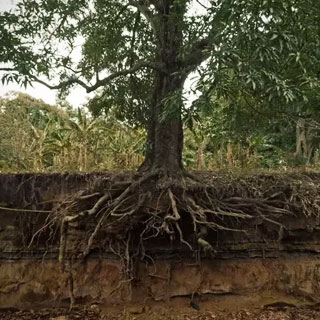
We systematically prune the roots in phases and initiate fresh growth of roots and make the plant adapt itself gradually into a new routine whereby after cutting the roots, we treat the cut parts and feed it with different methods. It is a gradual process and it takes about 3-4 months to actually pack a tree into a new system of living. Not a single root is left without cutting and initiating fresh growth of roots in a packed system. Since roots are cut in a phased manner labour is required all through this period. Also before initiating root cutting process, we make sure that the tree is not infected and if it is we treat accordingly.
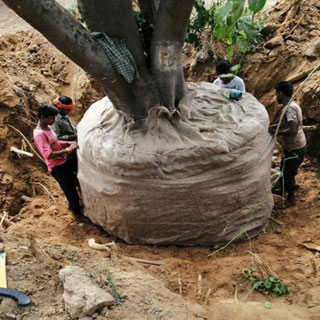
This involves packing of trees, timely feeding of the plant with soluble fertilizers and watering. There has to be regular monitoring regarding fertilizer schedules and the chemicals like insecticides, pesticides during the course for general treatment. At the same time we need expert staff to sew packing material properly and tightly according to the root requirement. Now since we have packed the plant in the same environment it needs external support to remain in the samePosition without falling down because of wind pressure. Scaffolding is required for about one and a half to three months depending upon the condition of the tree for each transplanted tree to give it external support.
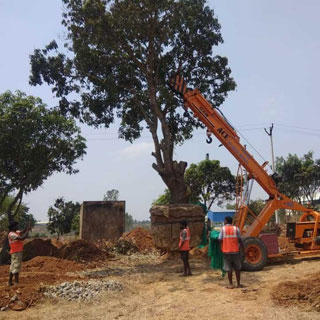
Crane is required to lift the packed tree and usually a trolley or truck is used to transport the tree depending upon its size from its original location to the place where it is to be transplanted. JCB is used for digging pits. Pruning may be required depending upon the size of the root ball, the plant canopy, health of the plant, species transplanted or because of overhead wires and spread of the road while transplantation of the tree. After about 3 months we lift the tree with the help of crane.
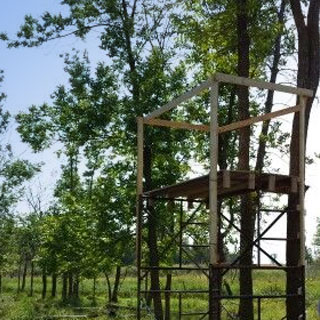
Mechanical support for trees is necessary when the tree is tall, slow to recover & heavily foliaged. Scaffolding is required for about one and a half month for each transplanted tree to give it external support. The support provided to a tree should be removed as soon as the tree can stand alone. It takes about 30 to 45 days in the growing period for the transplanted tree to grow new branches & foliage. The sooner the support will be removed, the faster the tree will become stronger.
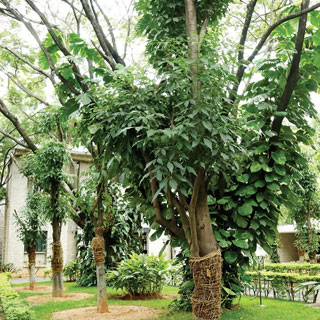
Insect infested stems or those infected with disease should be removed doing transplanting and treatment given. Any broken stems during transplant should be removed carefully.
Sometimes additional pruning may be required to balance the leaf area with the reduced size of root system.
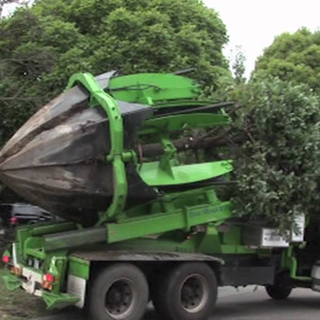
Sidhgreen Trees has perfected industry leading techniques for tree relocation. This involves lifting an existing tree from one location and transporting it to another before successfully replanting.
We believe there is nobody, who would have transplanted all varieties of trees, we would also not be sure of many varieties unless and until we take the tree down the knife. For trees that we do not have experience, we request to be given a chance for national or worldwide interest.
We shall take soil samples of the new place where these trees are to be transplanted, other than that we shall look on the levels where these trees are to be placed. These levels should not be low lying as water would clog and make the fresh roots rot during rains. Only if we find near similar conditions we shall transplant them to your designated position or otherwise you shall suggest us alternative landmarks. We suggest that transplanted trees should be relocated to nearest positions so that there is no damage to the root system on undulated tracks or it should have a plain track for a longer length for transplantation. It is also requested it should be away from the construction site or should be barricaded properly so that unwanted disturbances do not occur.
After transplantation and even if with good transplantation there are chances of external infections to the tree because of which it needs maintenance for at least 2-3 months. We have to adopt a certain Fertilizing Schedule depending upon the visual condition of a tree.
We have although not checked the water which would be available to us because of which we might have to undertake alkaline/acidic management of root zone conditions.
All our clients are satisfying with our service.